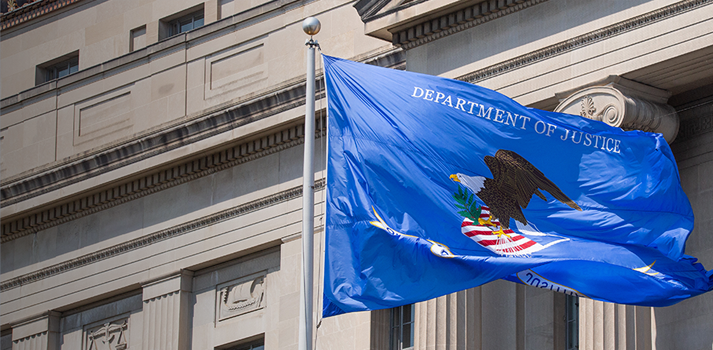Global News
New U.S. Advisory Note on Sanctions and Export Controls Compliance of Foreign-Based Persons
DATE
07 Mar, 2024
Read time
10
Key aspects:
- On March 6, 2024, the U.S. Department of Justice, the Department of Commerce’s Bureau of Industry and Security (BIS), and the Department of the Treasury’s Office of Foreign Assets Control (OFAC) issued a Tri-Seal Compliance Note focusing on the obligations of foreign-based individuals and entities to adhere to U.S. sanctions and export control laws, as well as the risks of exposure they may face for non-compliance.
- The note highlights the applicability of U.S. sanctions and export control laws for non-U.S. persons and describes the enforcement mechanisms available to hold violators accountable.
- The document also provides an overview of compliance considerations for non-U.S. companies and compliance measures that could potentially help mitigate their risk.
Applicability of U.S. sanctions and export control laws to foreign-based persons
U.S. persons, including citizens, residents, and U.S.-incorporated entities with foreign branches, must follow OFAC regulations. Foreign entities owned or controlled by U.S. persons in specific sanctions programs and foreign persons with U.S.-origin goods are also obligated to comply.
Non-U.S. persons are under OFAC prohibitions, preventing them from causing U.S. persons to violate sanctions or engaging in conduct evading U.S. sanctions.
Violating OFAC regulations may lead to civil or criminal penalties. OFAC can impose civil penalties based on strict liability, holding individuals liable even if unaware of violating sanctions laws. Current penalty details can be found in OFAC’s Economic Sanctions Enforcement Guidelines (31 C.F.R. Part 501, App’x A).
As for criminal prosecution, the Department of Justice (DOJ) has the authority to initiate criminal prosecutions under the International Emergency Economic Powers Act (IEEPA) and Export Control Reform Act (ECRA) for intentional breaches of U.S. sanctions and export control laws. Actions prohibited by these statutes encompass causing a violation of any license, order, regulation, or prohibition issued under IEEPA, as well as causing or inducing acts prohibited or the omission of any required act under ECRA or the EAR. Willful violations of either statute can result in a maximum penalty of 20 years of imprisonment and a $1 million fine.
OFAC Enforcement Actions Against Foreign Persons
OFAC has actively used its enforcement authorities against foreign financial institutions and other entities for various violations, such as causing U.S. persons to breach OFAC sanctions, conspiring to do so, indirectly exporting U.S. services, or engaging in other violative conduct. Instances of this behavior include a non-U.S. person obscuring or omitting references to a sanctioned party or jurisdiction in transaction documentation involving a U.S. person, misleading a U.S. person into exporting goods to a sanctioned jurisdiction, or routing a prohibited transaction through the U.S. or its financial system, leading to a violation of OFAC sanctions.
Specific examples of OFAC enforcement actions are detailed in the advisory note for reference.
U.S. Export Control Laws
The U.S. Department of Commerce’s Bureau of Industry and Security (BIS) enforces export controls on dual-use and specific munitions items through the Export Administration Regulations (EAR) under the authority of the Export Control Reform Act of 2018 (ECRA).
Unlike many countries, U.S. export control laws, governed by the EAR, apply globally to items subject to EAR and foreign persons dealing with them. Simply put, businesses dealing with export transactions subject to the EAR must comply with U.S. export controls. Failure to do so may risk you being the subject of an administrative or criminal enforcement action.
Additionally, the EAR covers not only initial exports but also:
- Reexports (shipment of EAR items from one foreign country to another),
- In-country transfers (transfer of an EAR item within a foreign country),
- Goods with a certain percentage of controlled U.S. content (de minimis thresholds),
- Exports, reexports, and in-country transfers of foreign-made items using U.S. software, technology, or production equipment (subject to a foreign direct product rule, or FDPR).
Specific examples of BIS enforcement actions are detailed in the advisory note for reference.
Compliance Considerations For Foreign-Based Persons
Foreign entities participating in the global marketplace must establish robust compliance measures to avoid violating U.S. sanctions or export control laws. Key considerations include:
- implementing a risk-based sanctions compliance program;
- instituting internal controls for financial transactions;
- integrating customer information into screening protocols;
- providing training for subsidiaries on compliance requirements;
- addressing compliance issues promptly, and taking proactive measures when merging or acquiring enterprises.
In case of potential violations, voluntary self-disclosure to the relevant agency is recommended.
Related articles




